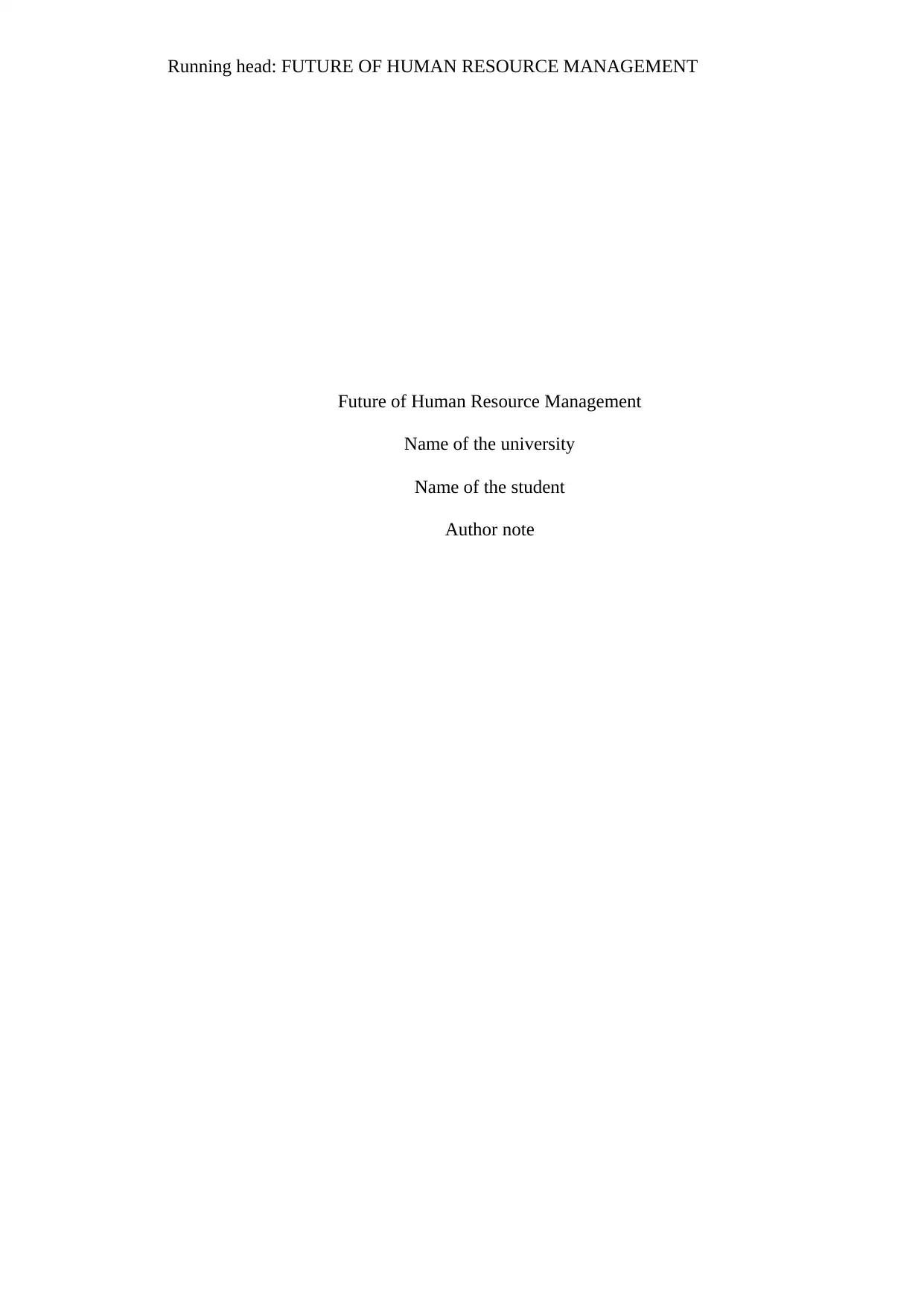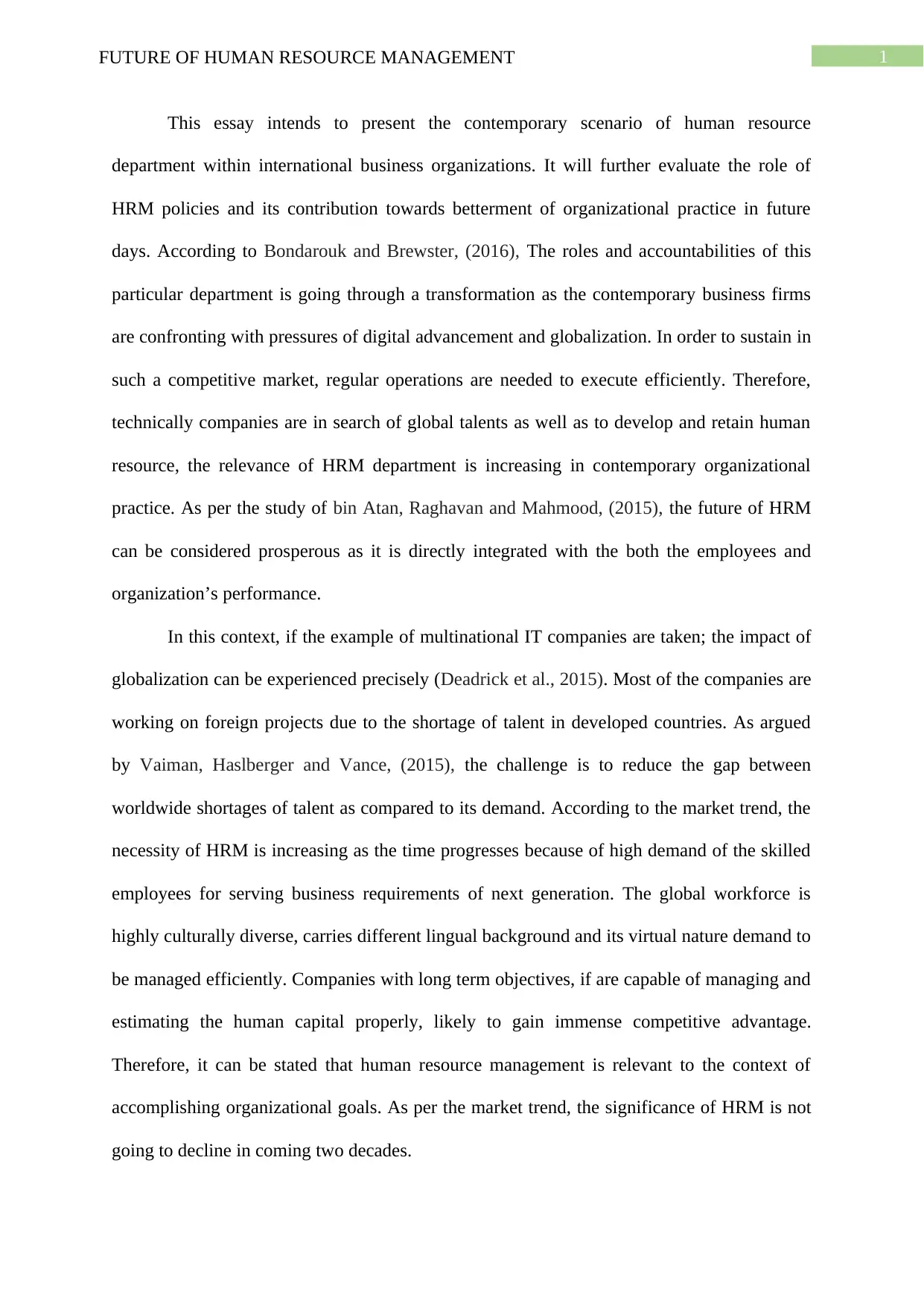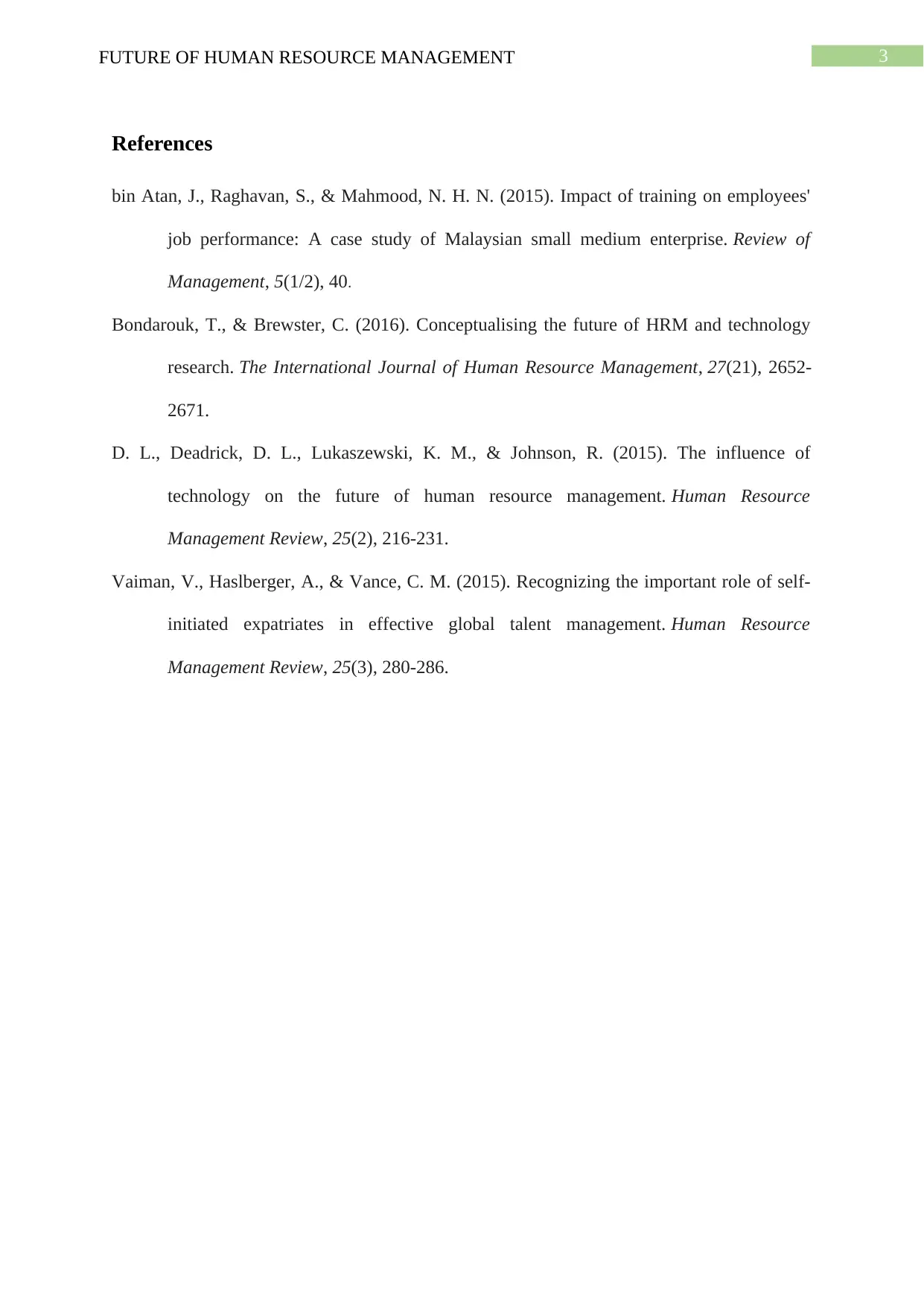Analyzing the Future Role of Human Resource Management (HRM)
VerifiedAdded on 2023/06/03
|4
|577
|428
Essay
AI Summary
This essay examines the contemporary state of Human Resource Management (HRM) within international business organizations, emphasizing the transformative pressures of digital advancement and globalization. It evaluates the evolving role of HRM policies and their contribution to improving organizational practices, particularly in the context of global talent acquisition, development, and retention. The essay highlights the increasing relevance of HRM in managing a culturally diverse and virtual global workforce, arguing that effective human capital management is crucial for achieving a sustainable competitive advantage. Ultimately, it posits that the significance of HRM is set to grow in the coming decades due to the rising demand for skilled employees in the next-generation business landscape.
1 out of 4





![[object Object]](/_next/static/media/star-bottom.7253800d.svg)